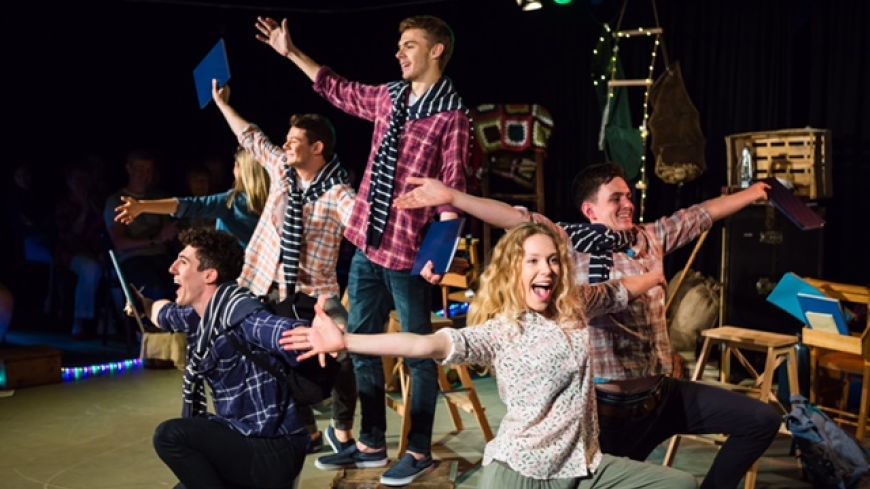
When Nicholas Heiney committed suicide in 2006 at the age of 23, his mother, Radio 4 broadcaster Libby Purves, discovered in his room thousands of words of prose and poetry that shed light on his inner struggle with depression.
Libby and husband Paul, urged on by Nicholas’s former tutor Professor Duncan Wu of Oxford University, collated and published his journals and poetry in a book entitled The Silence at the Song’s End after a line taken from one of Heiney’s poems.
This collection of writing, eloquent and moving and noted for lacking in both self-flattery and sentimentality, has now served as an inspiration for a performance of Nicholas’s story by theatre company RGS (Really Good Stories).
Heiney had been a keen sailor and the set is strewn with reminders of the sea, from lobster pots and a life ring, to model ships and the odd oar. Also lying about are many large, heavy books – many of which have their pages torn out, crumpled and scattered on the floor by the cast as the story unfolds. While this adds to the dramatic effect, it does cause the book-lovers in the audience to wince slightly at such relentless, wilful destruction.
That aside, the youthful cast of six, who all must be around the age Heiney was when he died, carry his story with an entertaining energy and enthusiasm, beginning with his back-story and ending with the scattering of his ashes at sea.
The four young men (Alex Pangalos Chris Whyte, Cris Zaccarini and Olly Massey) take it in turns to voice Heiney’s words, each adding something of their own to the enigmatic personality they are trying to bring to life. Aided by Dannie Harris as Libby and Holly Bowling as sister Rose, they make full use of the theatrical space and available props, keeping up a constant stream of movement with the occasional tableaux, all creatively directed by Sarah Branston.
Heiney’s reflections are remarkably sane and clear-sighted and while his despair and loneliness is painfully apparent, there is laughter in there too as he speaks of what he sees and always tells the truth – often with a biting lucidity.
The cast end with a short summing up of what Heiney and his writing mean to each of them and perhaps it is no coincidence that the most memorable of these is from a male cast member who says Heiney has taught him the importance of turning what you hate into something to laugh at. It is also apt that the abiding metaphor, one of Heiney’s own, is that of being cast adrift without an anchor.
Not only an enjoyable 50 minutes, this performance also entices you to read Heiney’s words for yourself.
Runs 22–27 August, 3pm. £8 (£6)

